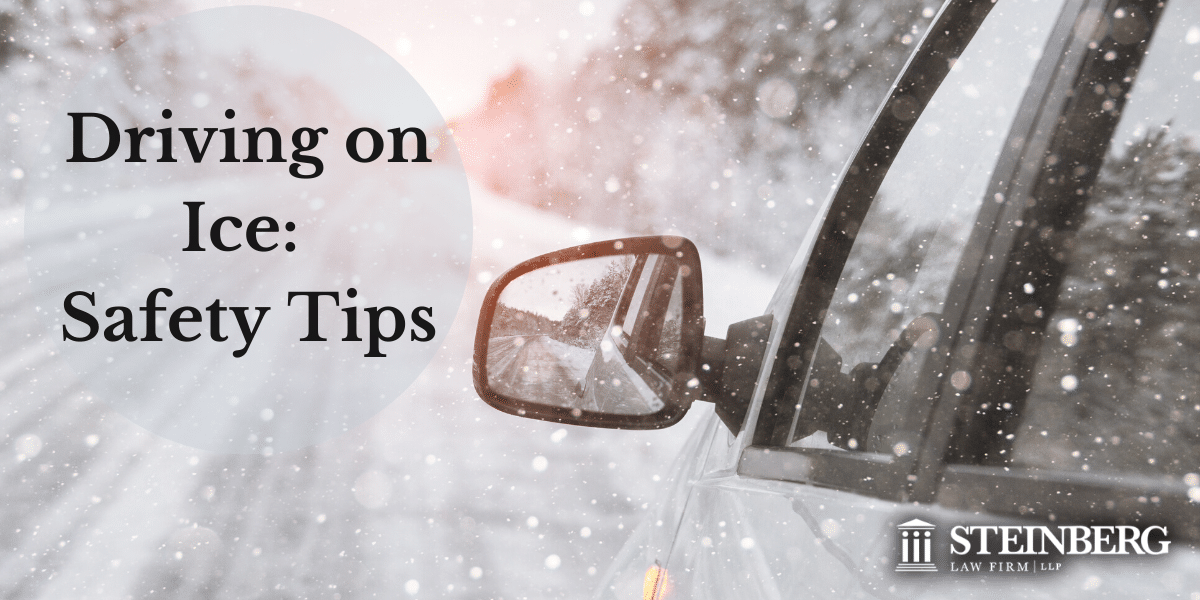
Driving on Ice: Safety Tips
Most people spend their holidays driving to meet their family or just simply going out for a short trip. While this season is popular for travelers, the severe weather can be both frightening and dangerous.
According to research by the AAA Foundation for Traffic Safety, winter storms and sloppy road conditions are a factor for nearly half a million car crashes. With this said, here are some safety tips to keep in mind if you are driving in the cold icy weather.
- Preparation is key -Make sure to have your car checked (e.g., tires, brakes). Doing this can prevent you from having car issues during your trip. Aside from preparing your vehicle, don’t forget to check the weather along your route, and when possible, delay your trip if bad weather is expected.
- Drive slowly -Never drive faster than 45 mph in any vehicle when roads are icy. Driving at high speed can make it easy for you to lose control and slide off the road.
- Go easy on your brakes -Brake application is a common trigger of slides, which result in loss of vehicle control. Just keep the heel of your foot on the floor and use the ball of your foot to apply firm, steady pressure on the brake pedal for you to have more control over it.
- Keep your distance – Keeping a safe distance from the vehicle in front of you will give you enough time to control the car if you need to stop.
- Avoid hills or other dangerous roads – Driving through a steep road can be dangerous during winter. If you can’t avoid it, make sure to go easy on stepping on that gas because too much of it may make your wheels spin. As you reach the top of the hill, reduce your speed and proceed downhill slowly.
- Don’t stop for accidents or stranded vehicles along an icy roadway – While helping a person in need is our natural instinct, stopping your car may cause you more problems. Parking your car at the side of the road can cause harm for passing drivers. The best you can do is call the authorities since they are more skilled in handling these types of incidents.
- Stay connected – Before hitting the road, make sure that you notify a friend or a family member of your route and destination so someone can look after your trip and ensure your safety until you reach your destination.
- Stay off the roads if possible -They say prevention is better than cure. If it’s not important, then choose to stay at home instead. Even if you are an excellent driver, it’s better to avoid taking unnecessary risks by venturing out.
These are just some of the tips to keep in mind if you need to hit the road this season. Being prepared and knowledgeable is the best way for you to safeguard yourself and your family from road accidents. After all, it is always better to be safe than sorry.





















